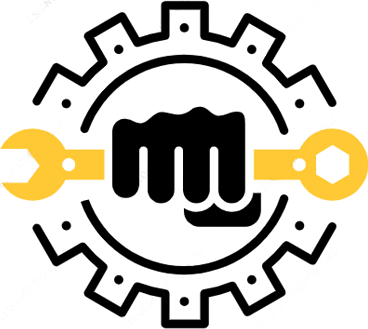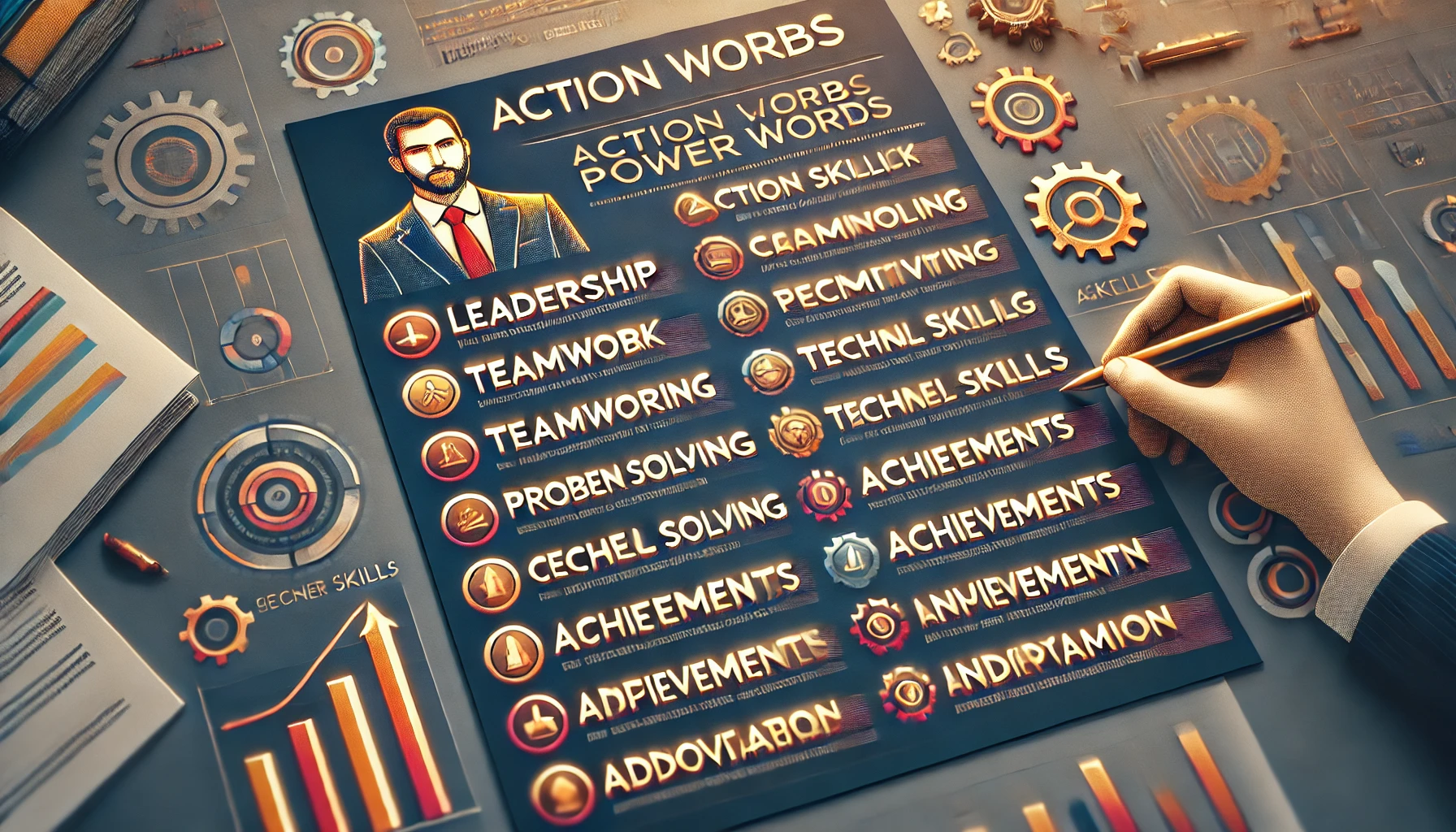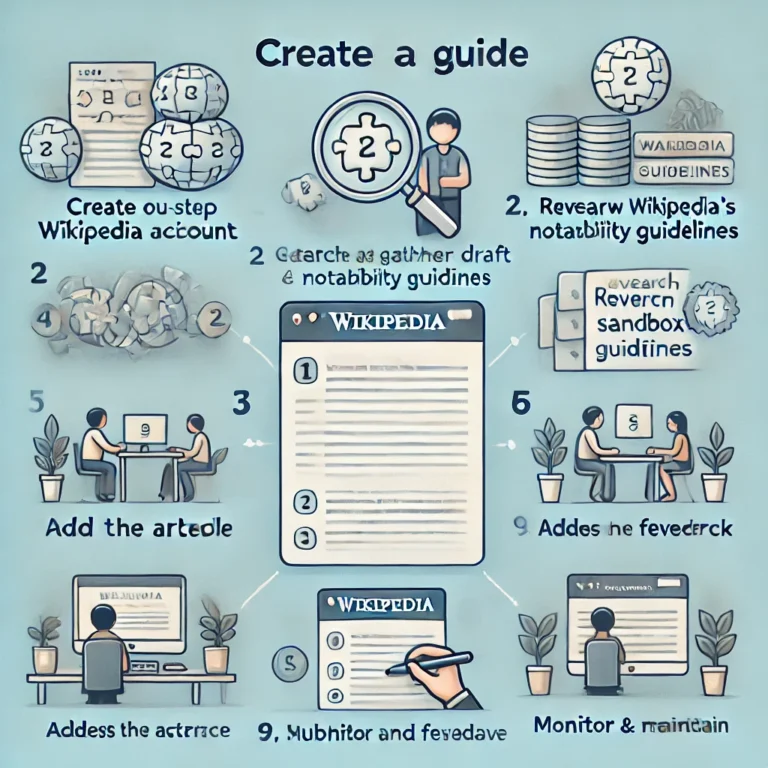Table of Contents
- Introduction
- Importance of Action Verbs and Power Words
- Categories of Action Verbs and Power Words
- Leadership
- Teamwork
- Communication
- Creativity
- Problem Solving
- Technical Skills
- Achievements
- Efficiency
- Innovation
- Adaptability
- How to Use Action Verbs and Power Words Effectively
- Common Mistakes to Avoid
- Conclusion
- FAQs
Introduction
Crafting an impressive resume can be a challenging task. It’s not just about listing your skills and experiences; it’s also about choosing the right words to make your resume stand out. Using powerful action verbs and power words can make a significant difference. But the question is, how do you know which words to use? This blog post will help you discover “150 Action Verbs and Power Words To Use on Your Resume” to make your application compelling.
Importance of Action Verbs and Power Words
Action verbs and power words bring your resume to life, showcasing your achievements and responsibilities in a dynamic and impactful way. They help to paint a clear picture of your capabilities and the value you can bring to a potential employer. Here’s why they matter:
- Clarity and Precision: They describe your duties and achievements clearly and precisely.
- Engagement: They make your resume more engaging to read.
- Professionalism: They convey a sense of professionalism and attention to detail.
- Accomplishment: They emphasize your accomplishments and the results you’ve achieved.
Categories of Action Verbs and Power Words
To help you get started, we’ve categorized 150 action verbs and power words that can transform your resume.
Leadership
- Led
- Directed
- Oversaw
- Administered
- Chaired
- Coordinated
- Facilitated
- Managed
- Mentored
- Supervised
- Guided
- Executed
- Headed
- Orchestrated
- Delegated
Teamwork
- Collaborated
- Partnered
- Supported
- Unified
- Assisted
- Contributed
- Volunteered
- Cooperated
- Participated
- Joined
- Aided
- Engaged
- Combined
- Shared
- Included
Communication
- Articulated
- Presented
- Negotiated
- Liaised
- Moderated
- Advocated
- Informed
- Promoted
- Corresponded
- Explained
- Documented
- Reported
- Consulted
- Addressed
- Drafted
Creativity
- Designed
- Created
- Innovated
- Developed
- Conceptualized
- Devised
- Formulated
- Visualized
- Fashioned
- Crafted
- Engineered
- Authored
- Invented
- Instituted
- Pioneered
Problem Solving
- Resolved
- Solved
- Identified
- Analyzed
- Diagnosed
- Rectified
- Investigated
- Troubleshot
- Addressed
- Prevented
- Corrected
- Improved
- Optimized
- Remediated
- Evaluated
Technical Skills
- Programmed
- Engineered
- Operated
- Utilized
- Configured
- Executed
- Installed
- Upgraded
- Maintained
- Monitored
- Networked
- Tested
- Repaired
- Assembled
- Computed
Achievements
- Achieved
- Completed
- Exceeded
- Surpassed
- Earned
- Reached
- Accomplished
- Secured
- Succeeded
- Attained
- Won
- Outperformed
- Fulfilled
- Conquered
- Triumphed
Efficiency
- Accelerated
- Streamlined
- Maximized
- Minimized
- Enhanced
- Expedited
- Increased
- Decreased
- Boosted
- Reduced
- Advanced
- Improved
- Augmented
- Conserved
- Upgraded
Innovation
- Innovated
- Modernized
- Transformed
- Revolutionized
- Updated
- Refined
- Reinvented
- Reengineered
- Overhauled
- Pioneered
- Redesigned
- Enhanced
- Devised
- Streamlined
- Customized
Adaptability
- Adapted
- Adjusted
- Modified
- Transitioned
- Integrated
- Revised
- Improvised
- Tailored
- Altered
- Converted
- Refined
- Transformed
- Realigned
- Modified
- Changed
How to Use Action Verbs and Power Words Effectively
To make the most out of these action verbs and power words, here are a few tips:
- Be Specific: Instead of saying you were responsible for something, say you managed, directed, or led.
- Quantify Your Achievements: Use numbers to highlight your achievements, such as increased sales by 30%, led a team of 10, etc.
- Match the Job Description: Tailor your resume to include action verbs and power words that match the job description.
- Keep It Concise: Avoid overloading your resume with too many power words. Choose the most impactful ones.
- Show Results: Always tie your responsibilities to results. For example, “Streamlined processes to reduce costs by 20%.”
Common Mistakes to Avoid
While action verbs and power words are powerful, there are some common mistakes to avoid:
- Overusing Buzzwords: Using too many power words can make your resume sound unnatural.
- Being Vague: Avoid generic terms like “responsible for.” Be specific about what you did and the results you achieved.
- Ignoring the Job Description: Customize your resume for each job application to align with the job description.
- Using Clichés: Phrases like “hard worker” or “team player” are overused. Instead, show how you were a hard worker or team player through your actions and achievements.
- Lack of Quantifiable Results: Whenever possible, back up your claims with numbers and specific examples.
Conclusion
Using the right action verbs and power words on your resume can significantly boost your chances of landing an interview. By selecting words that accurately describe your skills and achievements, you can make a strong impression on hiring managers. Remember, the goal is to make your resume as clear, concise, and impactful as possible.
FAQs
What are action verbs and power words?
Action verbs and power words are dynamic words that describe your skills, responsibilities, and achievements in a compelling way. They help to make your resume more engaging and impactful.
How can action verbs and power words improve my resume?
They improve your resume by making it more engaging, highlighting your achievements, and providing a clear picture of your responsibilities and skills.
How do I choose the right action verbs and power words for my resume?
Choose words that are relevant to the job you are applying for, and that accurately describe your skills and achievements. Tailor your resume to match the job description.
Can I use the same action verbs and power words for every job application?
While you can use some of the same words, it’s essential to tailor your resume for each job application to align with the specific job description and requirements.
How many action verbs and power words should I use in my resume?
Use enough to make your resume engaging and impactful, but avoid overloading it. Aim for a balance that highlights your key achievements and skills.




Leave a Comment